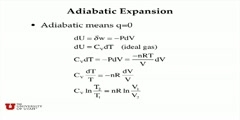Lec 6 - Expansion and Slavery: Legacies of the Mexican War and the Compromise of 1850
"Lec 6 - Expansion and Slavery: Legacies of the Mexican War and the Compromise of 1850" The Civil War and Reconstruction (HIST 119) In this lecture, Professor Blight discusses some of the conflicts, controversies, and compromises that led up to the Civil War. After analyzing Frederick Douglass's 1852 Fourth of July speech and the inherent conflict between American slavery and American freedom, the lecture moves into a lengthy discussion of the war with Mexico in the 1840s. Professor Blight explains why northerners and southerners made "such a fuss" over the issue of slavery's expansion into the western territories. The lecture ends with the crisis over California's admission to statehood and the Compromise of 1850. 00:00 - Chapter 1. Douglass's July Fourth Speech 12:36 - Chapter 2. The Election of 1844 and the Mexican War 25:52 - Chapter 3. Slavery in the West? The Legacy of the Mexican War 36:54 - Chapter 4. A Shrinking South? The South's Stance on Slavery in the West 42:36 - Chapter 5. Plans Leading to the Compromise of 1850 49:24 - Chapter 6. The Election of 1848 and Conclusion Complete course materials are available at the Open Yale Courses website: http://open.yale.edu/courses This course was recorded in Spring 2008.
Video is embedded from external source so embedding is not available.
Video is embedded from external source so download is not available.
Channels: Others
Tags: Daniel Webster Frederick Douglass Henry Clay James K. Polk Manifest Destiny Mexican-American War Compromise 1850 West Expansion
Uploaded by: yalecivilwar ( Send Message ) on 01-09-2012.
Duration: 53m 16s
Here is the next lecture for this course
Lec 7 - A Hell of a Storm The Kansas-Nebr ...
47:54 | 3568 viewsLec 58 - Isothermal Compression Expansion
01:26 | 2517 viewsLec 101 - Expansion Against Vacuum (Quiz)
02:18 | 2505 viewsLec 103 - Isothermal Expansion/Compression
01:36 | 2504 viewsLec 104 - Adiabatic Expansion/Compression
01:47 | 2772 viewsLec 105 - Adiabatic Expansion (Quiz)
02:09 | 2226 viewsExpansion of the Universe 1 Closed Caption
03:04 | 7687 viewsExpansion of the Universe 1
03:04 | 7439 viewsAstronomy: Expansion of Universe 1 Closed ...
03:06 | 8231 viewsExpansion and Compression of Gases
10:01 | 6333 viewsClinical Exam of Chest Expansion
01:28 | 10542 viewsLec 68 - Partial Fraction Expansion 1
11:28 | 3488 viewsLec 69 - Partial Fraction Expansion 2
13:02 | 3351 viewsLec 70 - Partial Fraction Expansion 3
10:35 | 3192 viewsLec 69 - Work from Expansion
12:43 | 2975 viewsNo content is added to this lecture.
This video is a part of a lecture series from of Yale
Lecture list for this course
Lec 1 - Introductions: Why Does the Civil War Era Have a Hold on American Historical
Lec 2 - Southern Society: Slavery, King Cotton, and Antebellum America's
Lec 3 - A Southern World View: The Old South and Proslavery Ideology
Lec 4 - A Northern World View: Yankee Society, Antislavery Ideology and the Abolition Movement
Lec 5 - Telling a Free Story: Fugitive Slaves and the Underground Railroad in Myth and Reality
Lec 7 - A Hell of a Storm The Kansas-Nebraska Act and the Birth of the Republican Party
Lec 8 - Dred Scott, Bleeding Kansas, and the Impending Crisis of the Union, 1855-58
Lec 9 - John Brown's Holy War: Terrorist or Heroic Revolutionary?
Lec 10 - The Election of 1860 and the Secession Crisis
Lec 11 - Slavery and State Rights, Economies and Ways of Life: What Caused the Civil War?
Lec 13 - Terrible Swift Sword: The Period of Confederate Ascendency, 1861-1862
Lec 14 - Never Call Retreat: Military and Political Turning Points in 1863
Lec 15 - Lincoln, Leadership, and Race: Emancipation as Policy
Lec 16 - Days of Jubilee: The Meanings of Emancipation and Total War
Lec 17 - Homefronts and Battlefronts:
Lec 19 - To Appomattox and Beyond: The End of the War and a Search for Meanings
Lec 20 - Wartime Reconstruction: Imagining the Aftermath and a Second American Republic
Lec 21 - Andrew Johnson and the Radicals: A Contest over the Meaning of Reconstruction
Lec 22 - Constitutional Crisis and Impeachment of a President
Lec 23 - Black Reconstruction in the South: The Freedpeople and the Economics of Land and Labor
Lec 24 - Retreat from Reconstruction: The Grant Era and Paths to
Lec 25 - The Civil War and Reconstruction Era















